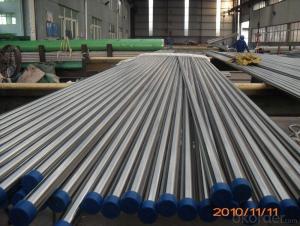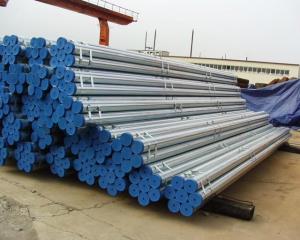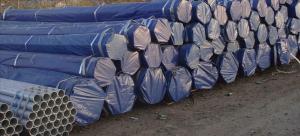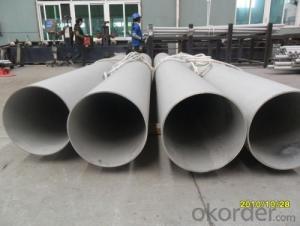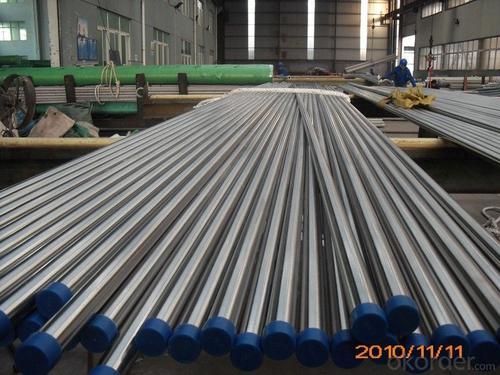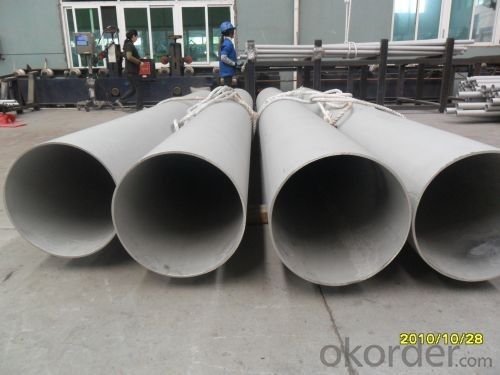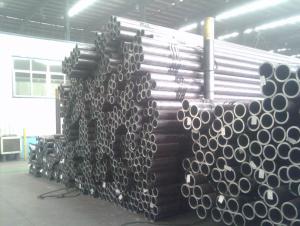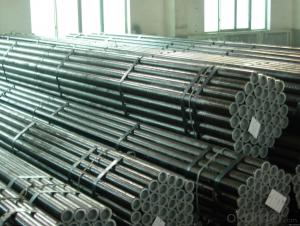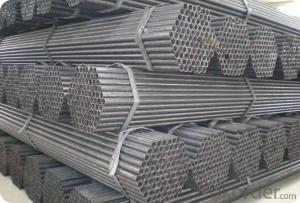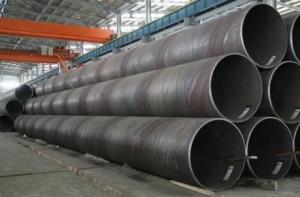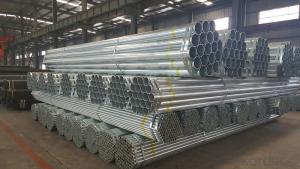Tube Welded Steel Pipe API SPEC 5CT Steel Pipe API SPEC 5CT
- Loading Port:
- Shanghai
- Payment Terms:
- TT or LC
- Min Order Qty:
- 25 kg
- Supply Capability:
- 5000 kg/month
OKorder Service Pledge
OKorder Financial Service
You Might Also Like
1、Structure of Welded Steel Pipe API SPEC 5CT:
Welded Steel Pipe is to be used for conveying gas, water, and petroleum foroil and natural gas industries. And used for structural steel pies purpose. As the manufacturing process does not include any welding, seamless pipes are perceived to be stronger and more reliable. Historically seamless pipe was regarded as withstanding pressure better than other types, and was often more easily available than welded pipe.
2、Main Features of Welded Steel Pipe API SPEC 5CT::
• High manufacturing accuracy
• High strength
• Small inertia resistance
• Strong heat dissipation ability
• Good visual effect
• Reasonable price
3、Welded Steel Pipe API SPEC 5CT: Specification:
Standard | GB, DIN, ASTM ASTM A106-2006, ASTM A53-2007 |
Grade | 10#-45#, 16Mn 10#, 20#, 45#, 16Mn |
Thickness | 8 - 33 mm |
Section Shape | Round |
Outer Diameter | 133 - 219 mm |
Place of Origin | Shandong, China (Mainland) |
Secondary Or Not | Non-secondary |
Application | Hydraulic Pipe |
Technique | Cold Drawn |
Certification | API |
Surface Treatment | factory state or painted black |
Special Pipe | API Pipe |
Alloy Or Not | Non-alloy |
Length | 5-12M |
Outer Diameter | 21.3-610mm |
Grade | 20#, 45#, Q345, API J55, API K55, API L80, API N80, API P110, A53B |
Standard | ASME, ASTM |
1) Material:20#(ASTM A 106/A53 GRB.API5LGRB,GB),45#,16Mn,10#.
2) Specification range:OD:21.3-610mm,WT:6-70mm,length:6-12m or according to the requirement of clients.
3) Excutive standards:GB,ASME API5L.ASTM A 106/A53,Despite of the above standards,we can also supply seamless steel pipe with standard of DIN,JIS,and so on,and also develop new products according to the requirements of our clients!
4) Surface:black lacquered,varnish coating or galvanized.
5) Ends:Beveled or square cut,plastic capped,painted.
6) Packing:bundles wrapped with strong steel strip,seaworthy packing.
4、Packaging & Delivery
Packaging Details: | seaworthy package,bundles wrapped with strong steel strip |
Delivery Detail: | 15-30days after received 30%TT |
5、FAQ of Welded Steel Pipe API SPEC 5CT:
①How is the quality of your products?
Our products are manufactured strictly according to national and internaional standard, and we take a test
on every pipe before delivered out. If you want see our quality certifications and all kinds of testing report, please just ask us for it.
Guaranteed: If products’ quality don’t accord to discription as we give or the promise before you place order, we promise 100% refund.
②How about price?
Yes, we are factory and be able to give you lowest price below market one, and we have a policy that “ for saving time and absolutely honest business attitude, we quote as lowest as possible for any customer, and discount can be given according to quantity”,if you like bargain and factory price is not low enough as you think, just don’t waste your time.Please trust the quotation we would give you, it is professional one.
6、 Welded Steel Pipe API SPEC 5CT: Images:
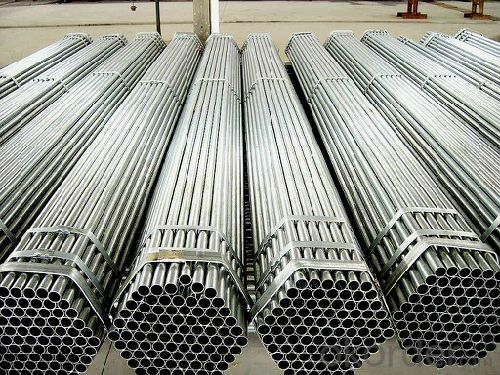
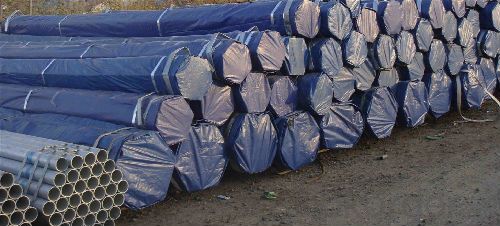
- Q: Can steel pipes be recycled?
- Yes, steel pipes can be recycled. Steel is a highly recyclable material and can be used to create new steel products, including pipes, through processes like melting and reshaping. This helps to conserve natural resources, reduce energy consumption, and minimize waste.
- Q: Can steel pipes be used for water wells?
- Yes, steel pipes can be used for water wells. Steel pipes are commonly used for constructing water wells due to their durability, strength, and resistance to corrosion. They can withstand high water pressure and provide a reliable and long-lasting solution for accessing underground water sources.
- Q: Can galvanized steel tubes simmer?
- Galvanized steel pipe can simmer bending.Is a set of bending bending bending die, no matter what kind of equipment, most are used in pipe, mainly used for oil and gas, infusion, more plays an important role in aircraft and engine.
- Q: Is hot dipped plastic pipe steel?
- Hot dip plastic composite pipes used in coal mine gas drainage, ventilation system, fire water system, central air conditioning HVAC piping circulating water, industrial water supply and drainage, water supply and drainage life, conveying gas and other gases, power threading, chemical pipelines and water disposal pipe etc..
- Q: How are steel pipes used in power plants?
- Steel pipes are extensively used in power plants for various applications. One of the primary uses of steel pipes in power plants is for transporting fluids and gases. These pipes are used to carry water, steam, and fuel (such as oil or gas) throughout the power plant. The high strength and durability of steel make it an ideal material for these pipes, as they can withstand high pressure and temperature conditions. Steel pipes are also used in power plant boilers. They form an integral part of the boiler system, where they carry hot gases and steam. These pipes are designed to withstand extreme heat and pressure, ensuring the safe and efficient operation of the boiler. Additionally, steel pipes are used in the cooling systems of power plants. Water is circulated through these pipes to cool down the equipment, such as turbines and condensers. The pipes are designed to withstand corrosion from the cooling water and maintain the required flow rate and pressure. Furthermore, steel pipes are used in the construction of power plant structures. They are used for the fabrication of support structures, such as frames, platforms, and walkways. Steel pipes provide excellent structural integrity and can withstand heavy loads, making them suitable for such applications. In summary, steel pipes play a vital role in power plants by transporting fluids and gases, serving as a part of the boiler system, facilitating cooling processes, and providing structural support. Their strength, durability, and resistance to extreme conditions make them an essential component in the operation of power plants.
- Q: What are the specifications for steel pipes used in high-pressure applications?
- The specifications for steel pipes used in high-pressure applications typically include factors such as high tensile strength, corrosion resistance, and the ability to withstand extreme temperatures and pressures. These pipes are usually made from alloy or carbon steel with specific dimensional requirements, such as minimum wall thickness and diameter, to ensure their durability and safety under high-pressure conditions. Additionally, they may need to comply with industry standards and regulations, such as ASTM or ASME specifications, to ensure their quality and suitability for high-pressure applications.
- Q: How are steel pipes used in the electronics industry?
- Steel pipes are commonly used in the electronics industry for various purposes such as cable management, structural support, and conduit systems. They provide a strong and durable solution for organizing and protecting electrical wires and cables. Additionally, steel pipes are utilized in the construction of electronic equipment enclosures and racks, ensuring stability and efficient cooling.
- Q: How are steel pipes tested for quality and strength?
- Steel pipes are tested for quality and strength through various methods such as destructive and non-destructive testing. Destructive testing includes tests like tensile, impact, and hardness tests, which measure the strength and durability of the pipes. Non-destructive testing methods like ultrasonic or X-ray examination are used to detect any defects or flaws in the pipes without causing any damage. These testing methods ensure that steel pipes meet the required quality and strength standards before being used in various applications.
- Q: How are steel pipes protected against rust and corrosion?
- Steel pipes are protected against rust and corrosion through various methods such as applying protective coatings like zinc or epoxy, using cathodic protection techniques, or by utilizing stainless steel pipes that have inherent resistance to rust and corrosion. Additionally, regular maintenance and inspections help to identify and address any potential corrosion issues early on.
- Q: How are steel pipes protected against fire?
- Steel pipes are typically protected against fire through the application of fire-resistant coatings or by encasing them in fire-rated materials, such as concrete or gypsum board. Additionally, fire sprinkler systems or fire-resistant insulation may be installed around the pipes to provide an added layer of protection.
Send your message to us
Tube Welded Steel Pipe API SPEC 5CT Steel Pipe API SPEC 5CT
- Loading Port:
- Shanghai
- Payment Terms:
- TT or LC
- Min Order Qty:
- 25 kg
- Supply Capability:
- 5000 kg/month
OKorder Service Pledge
OKorder Financial Service
Similar products
Hot products
Hot Searches
Related keywords
